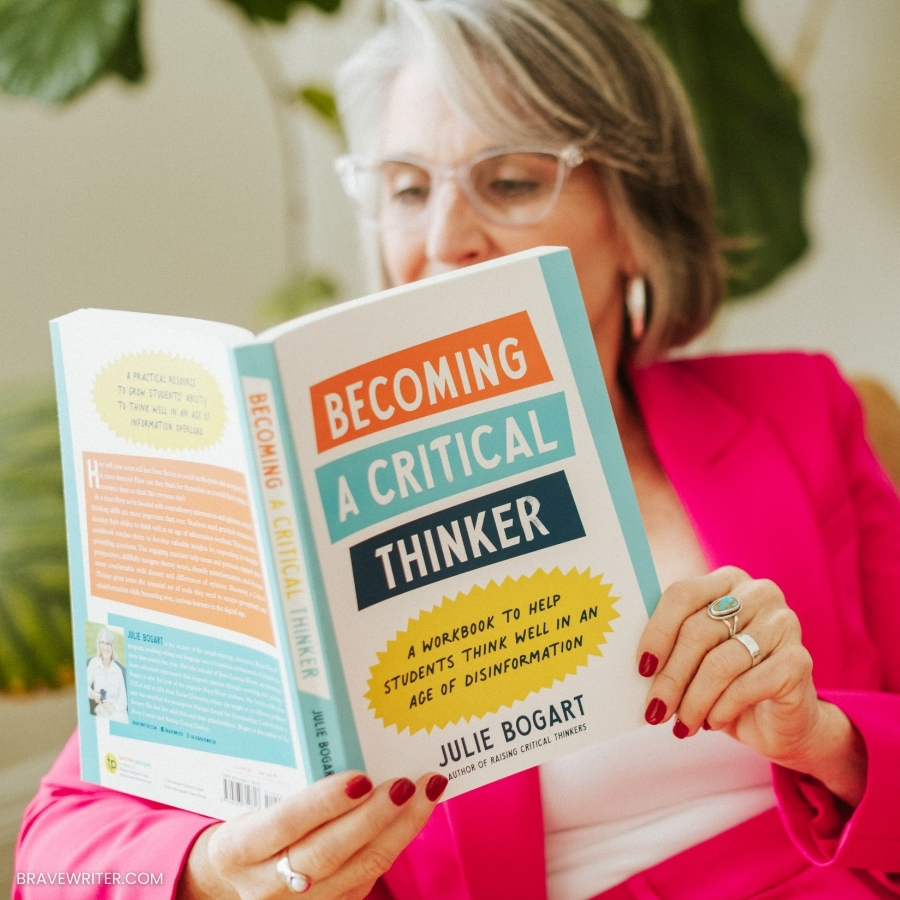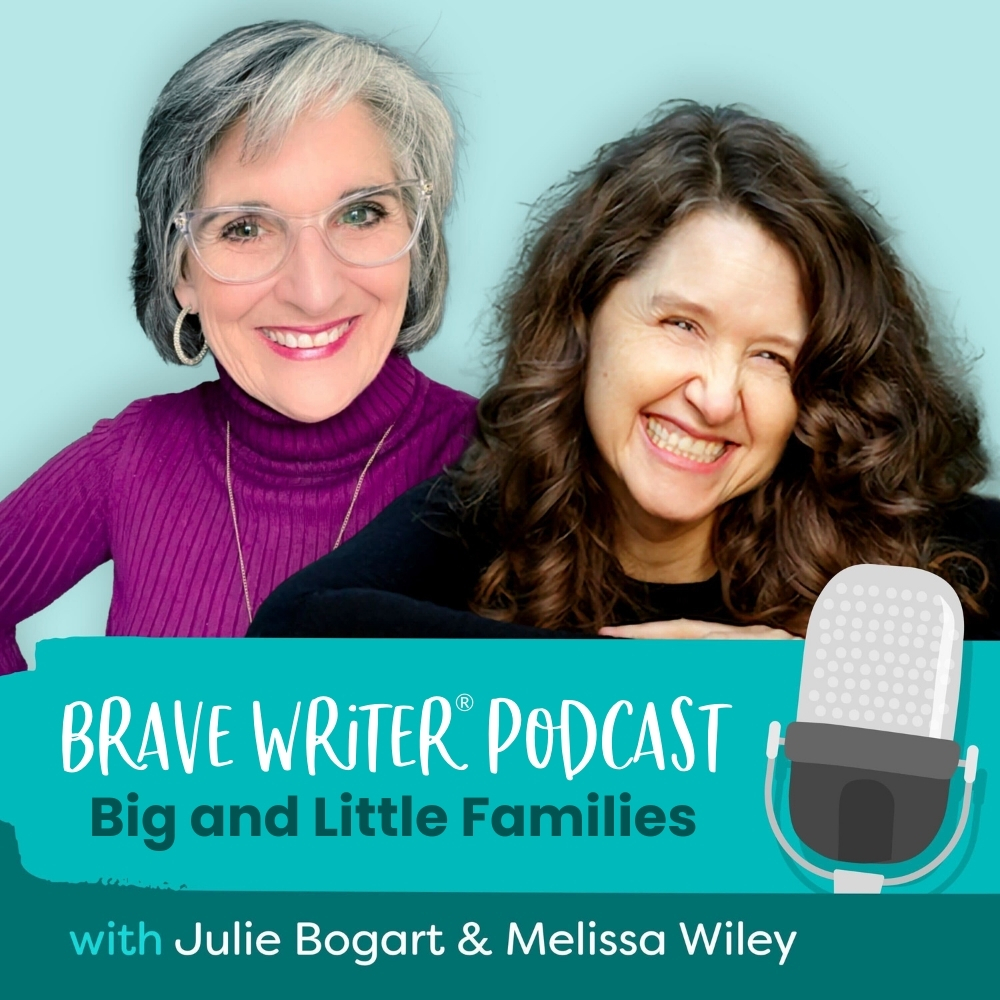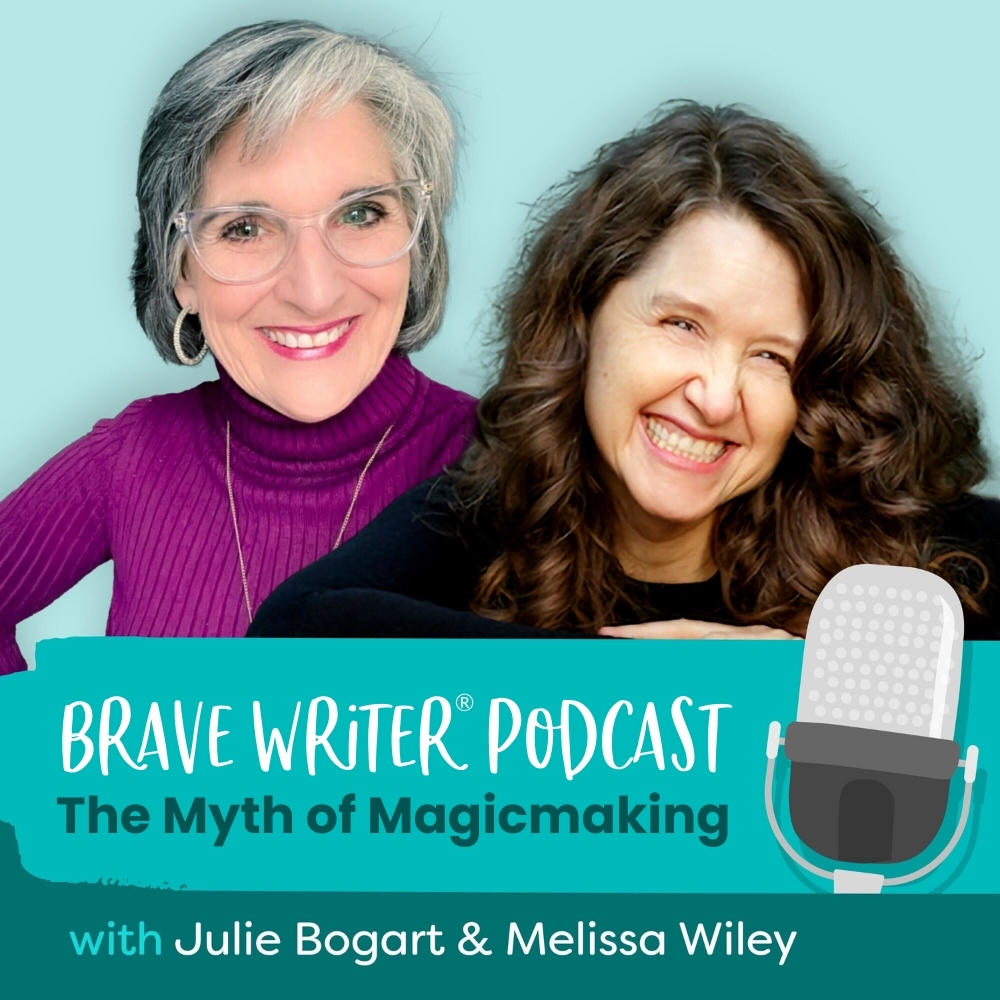
Brave Learning: A Critical Thinker’s Bill of Rights

Recently on Brave Learning…
A Critical Thinker’s Bill of Rights
and responsibilities, for good measure
Have you ever experienced a sudden blast of awareness—what you thought you knew, you now question?
What did that feel like? Disturbing? Anxiety-provoking? Liberating?
Have you ever been in a conversation only to discover that the ideas you hold would injure your relationship if you were to say them out loud?
How did you manage those thoughts and ideas?
Do you ever feel pressured to declare a decided opinion, even when you don’t have the data and education to take a strong position?
Where did that pressure come from? What were the unsaid (or said) consequences of deviating from the group’s approved beliefs?
[Keep reading]
Subscribe to Brave Learning on Substack where we discuss, problem-solve, and create together. Here’s what you can expect: weekly themed content, freewriting prompts, and a podcast for kiddos called Monday Morning Meeting!
[Podcast #326] Big and Little Families

Homeschooling looks different depending on how many kids you’re teaching—and that’s exactly the point.
In this Brave Writer podcast episode, we explore the real-life rhythms of homeschooling in both big families and small ones, offering practical strategies for group learning, one-on-one time, and everything in between.
We talk about:
- releasing guilt,
- using creative resources to keep kids engaged,
- and recognizing the unique opportunities that come with each family size.
Whether you’re juggling many ages or navigating the intensity of homeschooling an only child, this conversation is full of reassurance, ideas, and perspective. Join us—and let’s rethink what “doing enough” really means.
Show Notes
Homeschooling doesn’t come in one standard size. The daily rhythms of a home with six children look very different from those of a home with one—and yet both can offer rich, meaningful learning when expectations are aligned with reality.
Let go of equal time
One of the biggest myths in homeschooling, especially for large families, is the idea that every child must receive equal time, equal attention, and equal subjects every single day. That model simply doesn’t reflect how learning actually works. Instead, homeschooling thrives when we allow learning to happen in shifting configurations: whole-group discussions, small clusters, pairs, and occasional one-on-one moments. These groupings evolve as children grow, and that flexibility is a strength, not a flaw.
Design for real life
In homes with many children, one-on-one instruction often happens outside traditional “school hours.” Early mornings, nap times, evenings, and weekends all count. Learning doesn’t disappear when the clock hits 3:00. Creating space for focused instruction sometimes means letting other children watch a show, work independently, or dive into open-ended creative activities. That isn’t a failure of discipline—it’s a thoughtful accommodation to reality.
The power of open-ended play
Creative stations stocked with materials like clay, watercolors, beeswax, pipe cleaners, and building supplies allow children of many ages to engage meaningfully at the same time. These activities aren’t just distractions. They support fine motor skills, imagination, problem-solving, and sustained attention, while freeing the parent to work closely with a child who needs it.
Small families bring their own intensity
Homeschooling one child or two can feel surprisingly demanding. Without siblings to diffuse attention, the spotlight can feel intense for both parent and child. That’s why parallel learning—working side by side rather than face to face—can be so powerful. Reading together, writing together, or pursuing shared interests lowers pressure and keeps learning relational instead of performative.
Go wide and deep
Only children, in particular, benefit from group experiences beyond the home. Theater groups, clubs, volunteer work, and classes with mixed ages provide collaboration and perspective. At the same time, small families have a unique advantage: the ability to go deep. When a child’s interests drive learning, parents can follow those threads confidently, knowing depth is not the enemy of progress.
Protect emotional space
Sibling comparisons can be especially sharp in families with just two children. Offering different assignments, honoring developmental timelines, and resisting side-by-side comparisons protects each child’s dignity. Learning isn’t a race, and progress doesn’t need to look the same.
Homeschooling succeeds when we stop forcing our families into rigid frameworks and instead build systems that reflect who we actually are. Big or small, every family can create a learning life that is humane, responsive, and full of curiosity.
Resources
- Find great read alouds and read-alones in the Brave Writer Book Shop
- Brave Writer class registration is open!
- Visit Julie’s Substack to find her special podcast for kids (and a lot more!)
- Purchase Julie’s new book, Help! My Kid Hates Writing
- Find community at the Brave Learner Home
- Learn more about the Brave Writer Literature & Mechanics programs
- Start a free trial of CTCmath.com to try the math program that’s sure to grab and keep your child’s attention
- Subscribe to Julie’s Substack newsletters, Brave Learning with Julie Bogart and Julie Off Topic, and Melissa’s Catalog of Enthusiasms
- Sign up for our Text Message Pod Ring to get podcast updates and more!
- Send us podcast topic ideas by texting us: +1 (833) 947-3684
- Interested in advertising with us? Reach out to media@bravewriter.com
Connect with Julie
- Instagram: @juliebogartwriter
- Threads: @juliebogartwriter
- Bluesky: @bravewriter.com
- Facebook: facebook.com/bravewriter
Connect with Melissa
- Website: melissawiley.com
- Substack: melissawiley.substack.com
- Instagram: @melissawileybooks
- Bluesky: @melissawiley.bsky.social
Produced by NOVA
The Enchanted Education: Master Post

Enchantment does not always mean adding more. Sometimes, enchantment means recognizing what your family already does and leaning into it—counting it!
Little moments that make up your day can be encounters with enchantment if you stop to recognize them and soak them up with pleasure and appreciation.
This collection of posts will give you insights into what you should “count” as enchantment, and offer ideas for little ways you can boost your day to connect with your child and up the enchantment in your homeschool.
- Enchanted Education
- What Enchanted Education Is NOT
- Enchant the Environment
- 5 Magic Words
- The Four Forces of Enchantment
- Enchanted Education for Teens
- Keeping Enchantment Alive in High School
- A Little Enchantment Goes a Long Way
For more on this important topic,
check out Julie’s book, The Brave Learner!
If You Don’t Fit In

Sometimes it feels hard to be a homeschooler. You’re looking for the group where you fit in and you can’t quite find one. I feel you.
The stakes are higher than ever. So many groups have a strict philosophy or practice or belief system and if you don’t align, it can feel difficult to participate wholeheartedly. In some cases, you can’t even join!
I’ve lived a version of that experience and it’s not fun. It doesn’t feel good to be told that you don’t belong just because you don’t agree or you changed your mind.
When I built Brave Writer, I always wanted to welcome as wide a variety of homeschooler as there was into our work. We grow and we learn when we are exposed to a wide range of ideas and people and beliefs.
If it feels like you don’t fit elsewhere, just know that you have a home with us. We see you. We want you.
Need more support? Join our Brave Learner Home community and unlock the riches inside: coaches, resources, trainings, and friendships! And, as a member, you’ll have immediate access to the most extensive homeschool resource library on the internet.
[Podcast #325] The Myth of Magicmaking

What if enchanting learning didn’t require themed parties, elaborate prep, or constant performance?
In this Brave Writer podcast episode, we unpack the myth of “magicmaking” and show why real enchantment is rooted in connection, not production. We share simple, practical ways to revive lessons that feel stuck, from eye contact and movement to snacks, forts, music, and letting kids take the lead.
Along the way, we explore how curiosity, comfort, and collaboration create learning that actually sticks. If you’ve been feeling burned out or pressured to “make school magical,” this conversation offers a deep exhale and a fresh way forward. Join us and rediscover how easy magic can be.
Show Notes
Many homeschooling parents quietly carry the belief that learning should feel magical all the time—and that if it doesn’t, something has gone wrong. When lessons fall flat, the instinct is often to add more: more prep, more creativity, more performance. But what if the problem isn’t a lack of magic at all?
What we’ve discovered is that the real myth lies in thinking enchantment comes from production. True magic in learning doesn’t grow out of themed parties or elaborate setups. It grows out of connection.
Connection Before Curriculum
When learning starts to feel sour, our first move isn’t to decorate the room or invent a clever hook. It’s to reconnect. Something as simple as making eye contact, sitting at the same level, and asking a genuine question can shift everything. That moment of being seen changes the tone from compliance to collaboration.
This is the heart of the magic described in The Brave Learner: learning thrives when relationship comes first. Without that relational foundation, even the most creative activity can feel hollow.
Learning Lives in the Body
One of the most overlooked tools in homeschooling is the body itself. Children learn with their whole selves, not just their minds. Chewing something crunchy, stretching before math, rolling on the floor, or jumping while memorizing facts can restore focus far more effectively than insisting on stillness.
These aren’t distractions. They are supports. Movement, touch, and sensory input help regulate attention and make learning feel possible again.
Changing the Space Without the Pressure
Environment matters too—but not in the way we often imagine. Rearranging furniture, building a fort, moving to the couch, or taking schoolwork to a coffee shop introduces novelty without pressure. Kids respond to surprise and ownership. When they help create the space, they’re far more willing to enter the work.
None of this has to be permanent. These shifts are seasoning, not structure. A little novelty can revive energy without becoming a new obligation.
Change the Tools, Not the Task
We also underestimate how powerful it is to change the materials instead of the lesson. Glitter pens, whiteboards, clipboards, oversized paper, or tiny notebooks can make familiar work feel new again.
The learning hasn’t been diluted. It’s been invited back in.
Let Your Child Be the Expert
One of the most effective enchantment tools is letting children teach. When kids become experts—on panda bears, base-12 math, a video game, or a favorite book—their confidence blooms. Our role shifts from referee to curious listener.
Children love being taken seriously. Leading with curiosity instead of correction often opens doors into subjects they previously resisted.
Permission Is Powerful
Not every subject needs to happen every day. Skipping handwriting occasionally, doing math orally, or declaring a “no worksheets” day can release tension instantly. Pressure rarely produces understanding. Relief often does.
Sometimes the most enchanting thing we can offer is permission: permission to trace, to play quietly, to think invisibly. Learning doesn’t always look productive from the outside, but thinking is still happening.
What Kids Are Really Learning
When kids are bored, angry, or shut down, they’re learning something—just not what we intended. They may be learning that math is miserable, that learning requires obedience, or that their experience doesn’t matter.
Connection Changes the Lesson Entirely
Enchantment, in the end, is simply forming a relationship: with a subject, with an idea, and with each other. That kind of magic doesn’t require a party. It just asks us to show up—curious, present, and willing to listen.
Resources
- Listen to our episode with Emily Glankler on “Not Boring History”
- Find Julie’s favorite book on improv in the Brave Writer Book Shop
- Brave Writer class registration is open!
- Visit Julie’s Substack to find her special podcast for kids (and a lot more!)
- Purchase Julie’s new book, Help! My Kid Hates Writing
- Find community at the Brave Learner Home
- Learn more about the Brave Writer Literature & Mechanics programs
- Start a free trial of CTCmath.com to try the math program that’s sure to grab and keep your child’s attention
- Subscribe to Julie’s Substack newsletters, Brave Learning with Julie Bogart and Julie Off Topic, and Melissa’s Catalog of Enthusiasms
- Sign up for our Text Message Pod Ring to get podcast updates and more!
- Send us podcast topic ideas by texting us: +1 (833) 947-3684
- Interested in advertising with us? Reach out to media@bravewriter.com
Connect with Julie
- Instagram: @juliebogartwriter
- Threads: @juliebogartwriter
- Bluesky: @bravewriter.com
- Facebook: facebook.com/bravewriter
Connect with Melissa
- Website: melissawiley.com
- Substack: melissawiley.substack.com
- Instagram: @melissawileybooks
- Bluesky: @melissawiley.bsky.social
Produced by NOVA




















